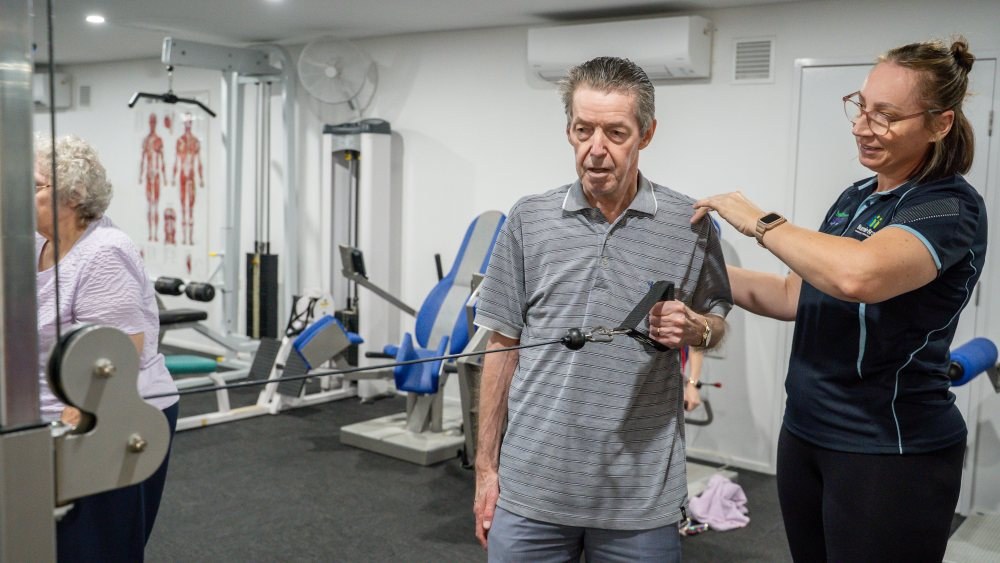Contact
Customer Service by Phone
Weekdays 7:30am – 4:30pm
Community Centre
60 Kuran Street, Chermside
Weekdays 8am – 4pm


Written by Lauren, Senior Exercise Physiologist
Imagine this. You’ve hurt your shoulder playing tennis. It aches when you reach overhead, so you start avoiding certain movements.
You swap the Hills Hoist for the air dryer because lifting the washing is too uncomfortable.
You ask your family to help with the high cupboards in the kitchen because putting dinner plates away causes a twinge.
Eventually, tennis gets sidelined altogether.
Without realising it, your world becomes smaller. You adjust your life to stay below shoulder height - not because it’s ideal, but because it’s easier. Less painful. Safer.
And that makes perfect sense.
Pain is the body’s alarm system. When something feels wrong, it’s there to get our attention.
If you touch a hot frypan, you pull your hand away in a split second. That’s acute pain, and our instinct is to act quickly to avoid further damage.
But when pain becomes chronic or lingers over time, our response is usually very different. We don’t always seek answers or solutions - instead, we often modify our behaviour to avoid discomfort.
We adapt. We avoid.
And slowly, our activities, confidence, and independence may begin to shrink.
This is completely normal - nobody wants to do things that hurt. But here’s the catch: when we avoid movement altogether, the pain doesn’t always go away… and the cost to our lifestyle and wellbeing can be significant.
Not exactly. The goal isn’t to “tough it out” - but to work with your body, not against it.
That’s where allied health professionals like Exercise Physiologists and Physiotherapists come in. We can help you understand what’s safe, what needs care, and how to build strength and confidence in your body again - even if you’re living with pain.
You don’t have to figure it out on your own.

One of the most powerful tools for managing persistent pain is movement - the right kind, at the right pace, and with the right support.
Through guided, personalised programs, we help you:
It’s so common to let pain quietly shrink your life. But you don’t have to stay there.
If pain has made certain movements difficult - or if you’ve stopped doing things you enjoy - our team is here to help you reconnect with movement, improve your quality of life, and regain your independence.
Let’s work together to make your world bigger again.
Want to learn more about how our allied health team can support you? Get in touch today!
Receive our latest
news & updates

© Burnie Brae Ltd. | ABN: 39 206 062 402 | ACN: 609 476 637
Burnie Brae Ltd. | ABN: 39 206 062 402 | ACN: 609 476 637



